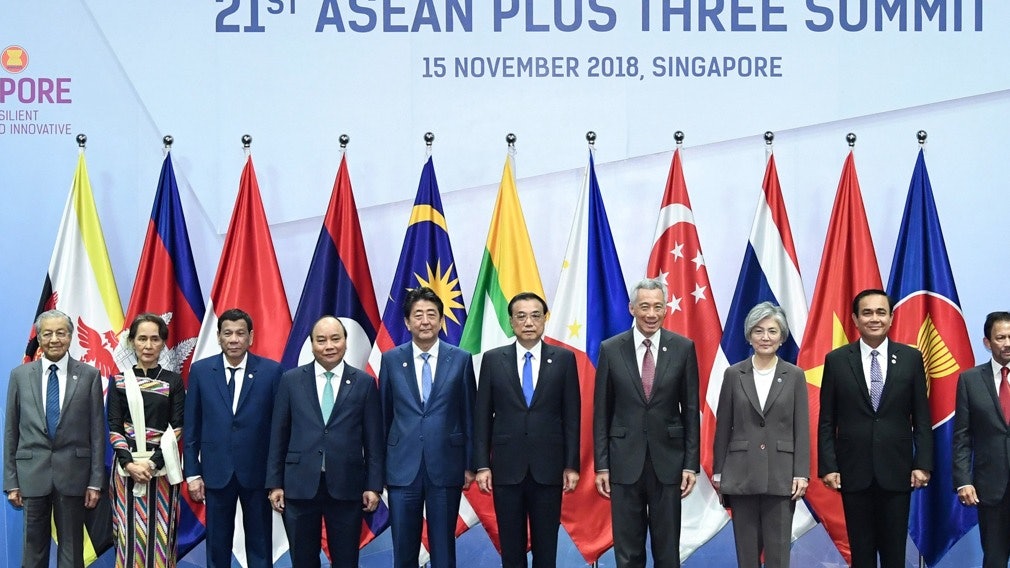In theory, ASEAN can benefit from the China-US trade war, but it is surprising that the “profit-making” ASEAN does not seem to show happiness and optimism, but is full of deep concern about the China-US trade war. anxiety.
There is an old saying in China: “There is a fight for the interests of the fishermen.” It means that the two sides can’t keep up and let the third party profit from it. This sentence is used to describe ASEAN under the China-US game seems to be the most appropriate.
For a calculation, the trade war between China and the United States has been more than a year. During the period, in order to avoid mutually increasing tariffs, the two countries have each reduced the import of certain commodities. It is worth mentioning that ASEAN has benefited a lot from it.
ASEAN takes advantage of the benefits of fishing
Shortly after the start of the trade war, Gao Yan, Vice Minister of the Ministry of Commerce of China, said at the 15th China-ASEAN Expo in July 2018 that China does not pursue a trade surplus and is willing to import more goods from ASEAN countries.
From the data point of view, the trade cooperation between ASEAN and China has indeed increased. China’s tax increase on US agricultural products, electromechanical and energy commodities has led China to expand its purchase of the above products from ASEAN countries, making it a substitute for the United States. China’s imports of mechanical and electrical products from ASEAN increased by 14.3% in 2018, and agricultural products increased by 10.8%; imported coal, lignite, natural gas and crude oil increased by 29.3%, 15.1%, 52.6% and 22.9% respectively.
Overall, the total value of China-US trade fell by 9.6%, and the United States also fell to China’s third largest trading partner in 2018 (the United States has been China’s second largest trading partner for nearly a decade). The bilateral trade between ASEAN and China grew by 9.4%, making it the second largest trading partner of China.
In addition to China, ASEAN and the United States also saw an increase in trade. With the long-term trade war between China and the United States, enterprises will shift production from China to Vietnam, which will increase Vietnam’s exports to the United States by nearly 30%, which will also promote economic growth.
According to data released by the US Department of Trade, US exports to ASEAN in 2018 were US$86.2 billion, an increase of 10.6% (US$8.2 billion) from 2017. The US imports of goods from ASEAN amounted to US$185.8 billion, an increase of 9.4% (US$16 billion) from 2017.
From January to March 2019, ASEAN’s exports to the United States increased by 26% year-on-year, and exports of apparel and footwear increased particularly (exports increased by about 15%).
In addition, due to the impact of the China-US trade war, US tariff sanctions against China have also led some companies to transfer to some ASEAN countries. Hasbro, a world-class branded entertainment company in the United States, plans to reduce the number of toys produced in China to 60% by 2020 and plans to transfer some of its production activities to markets such as Mexico, Vietnam and India.
Some multinational companies have even adopted the “China Plus One” approach, where the company maintains production in China and also operates in a region with low labor costs in Asia. The transfer of production sites has also directly stimulated the growth of foreign direct investment (FDI) in ASEAN countries.
Since the United States imposed tariffs on China in 2018, investment in Vietnam has accelerated in China and the United States, especially in the electromechanical and textile industries.
Based on the above data, in the context of the China-US trade war, the trade and FDI of the ASEAN countries represented by Vietnam have had a positive impact to some extent.
It is worth noting that ASEAN, which is “profit”, does not seem to be happy and optimistic, but is full of deep worries and anxiety about the China-US trade war.
Malaysian Prime Minister Mahathir Mohamad said at the 25th “Asian Future” international exchange meeting on May 30 that the conflict between the United States and China will only lead to “a bigger disaster.”
Indonesian Economic Coordinator Darmin Nasution also expressed concern that the trade war between the United States and China will have an indirect impact on Indonesia. Singapore’s Prime Minister Lee Hsien Loong also warned in 2018 that the China-US trade war could have global disastrous consequences.












